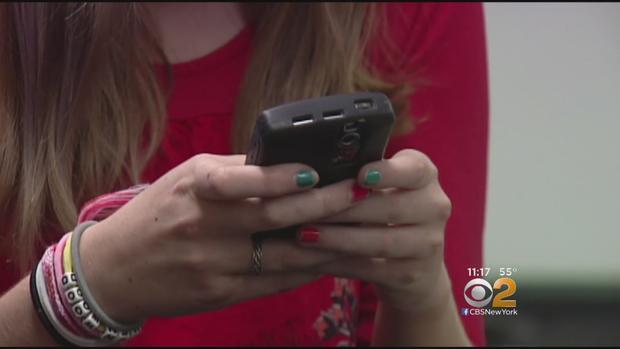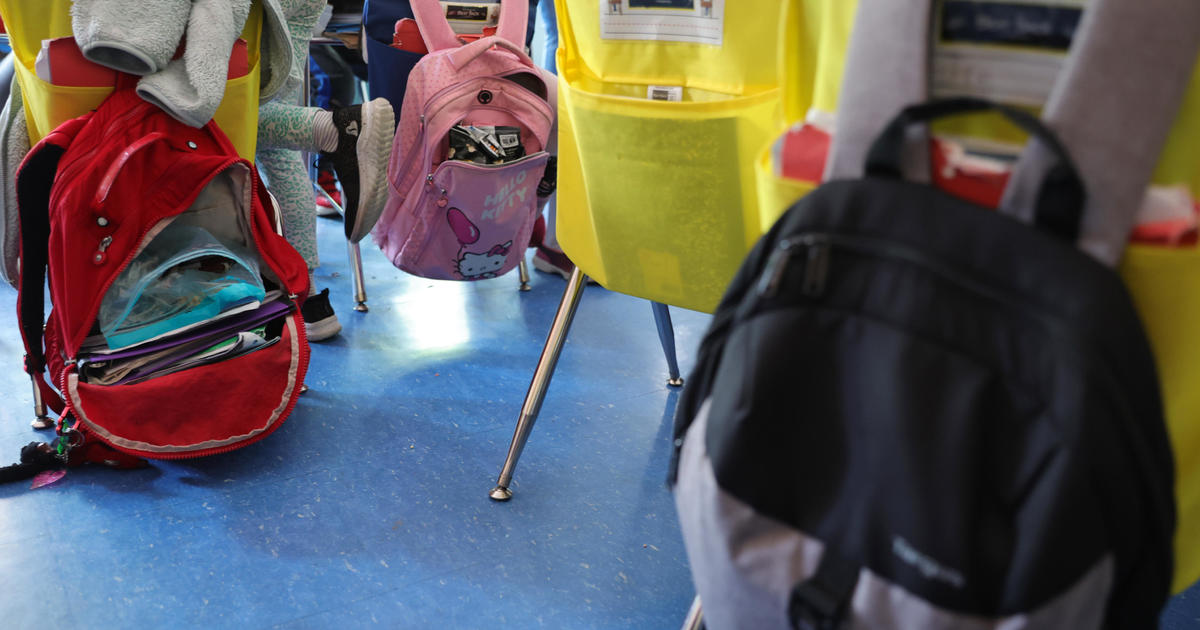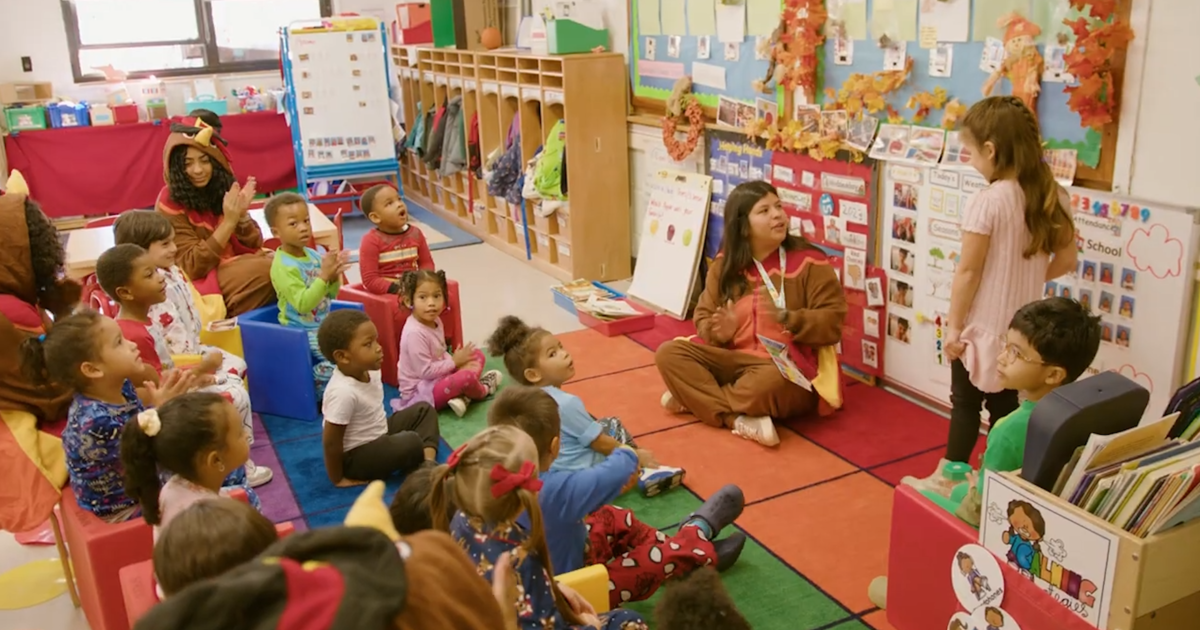Study: Limiting Kids' Screen Time Key For Better Brain Function In School
NEW YORK (CBSNewYork) -- Can less tech time lead to better grades for pre-teens?
The answer is yes, according to one study.
Researchers found that decreased screen time was one big factor in improved brain function, CBS2's Elise Finch reported Monday.
MORE: Veterinary Expert Believes Excessive Time On Smartphones Could Make Dogs Depressed
Smartphones, tablets, gaming systems and laptops are staples in children's lives these days.
"I like to make videos on it and code," third grader Ethan Harry told CBS2's Finch.
"I'll either be playing Minecraft or TAP Baseball," fifth grader David Seibel added.
"Probably YouTube. I'm watching a video and I see another one and I want to watch that and it keeps going," fifth grader Savannah Rogers said.
But limiting access to the devices they love might be the key to helping them do better in school. A research team studied the daily activities of more than 4,500 American children ages 8 to 11. It found that kids who got between nine and 11 hours of sleep each night, did at least an hour of physical activity each day and limited their recreational screen time to two hours or less had better cognition.
"It makes total sense to me," Upper West Side mom Laura Goldenberg said. "They're not good for our brains. It's pretty obvious."
"Your kids can get zoned in on that screen," mother Shannon Rogers added.
"They become too entranced in something that means absolutely nothing for their life," mother of four Zakiya Raines-Heyden said.
MORE: Expert Shares Advice On How To Limit Screen Time For Kids
Dr. Jill Emanuele is a clinical psychologist with the Child Mind Institute. She says while the study only points out a correlation between technology, screen time and cognitive function, it's worth taking note of.
"The idea is that there's something going on where the more time you spend on these screens doing this one activity and not interacting, not doing other things seems to have a negative effective," Emanuele said. "It doesn't teach them other ways of thinking, behaving and learning, so they're limited in some degree."
The study found that only five percent of the children met all the criteria for better cognition. Most children didn't meet any criteria, Finch reported.
"Just try and limit it as much as possible for yourself. I think just try and be a good role model," mother of three Amanda Andrews said.
That's good advice. Experts say one of the most effective ways to reduce kids' screen time is to have parents model that behavior for them. The brain benefits could be extraordinary.




